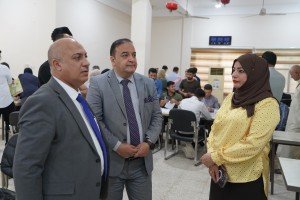
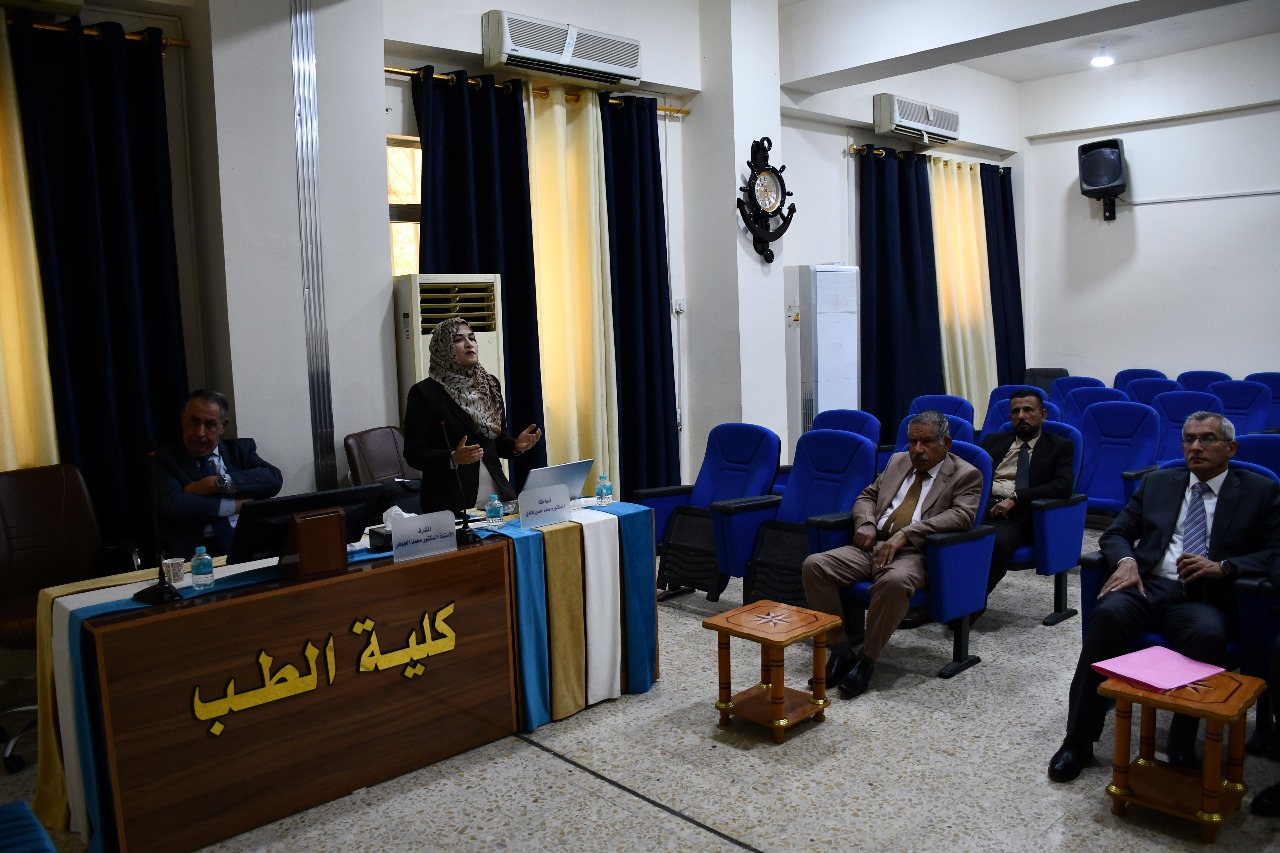
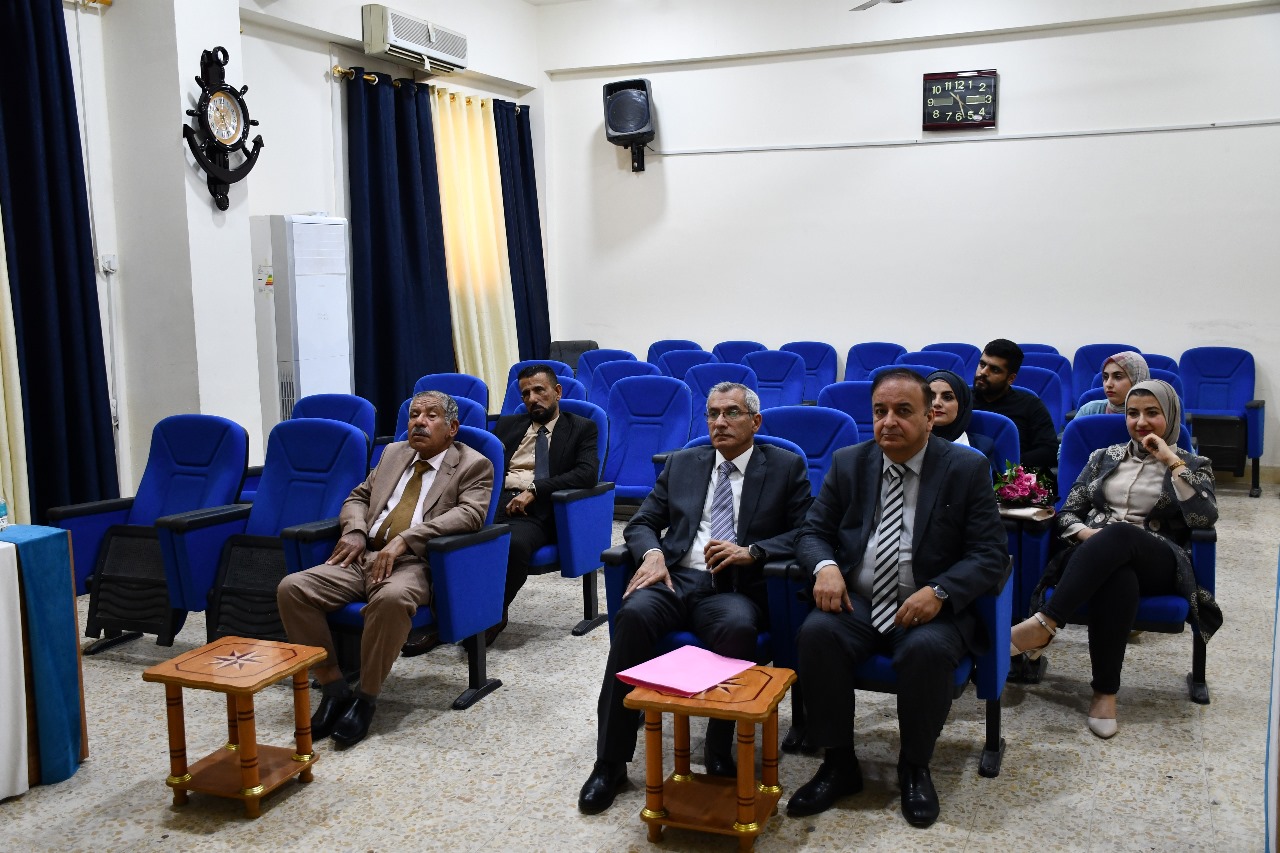
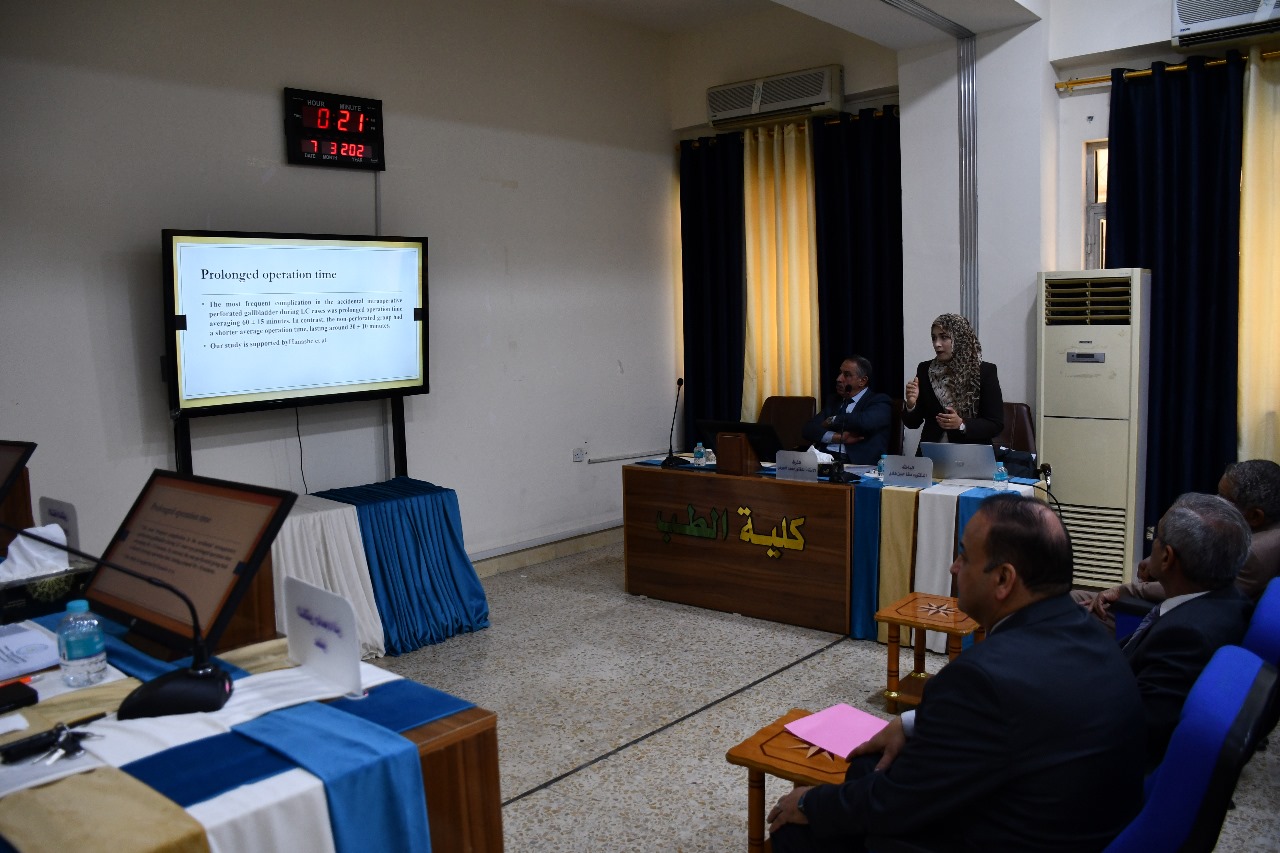
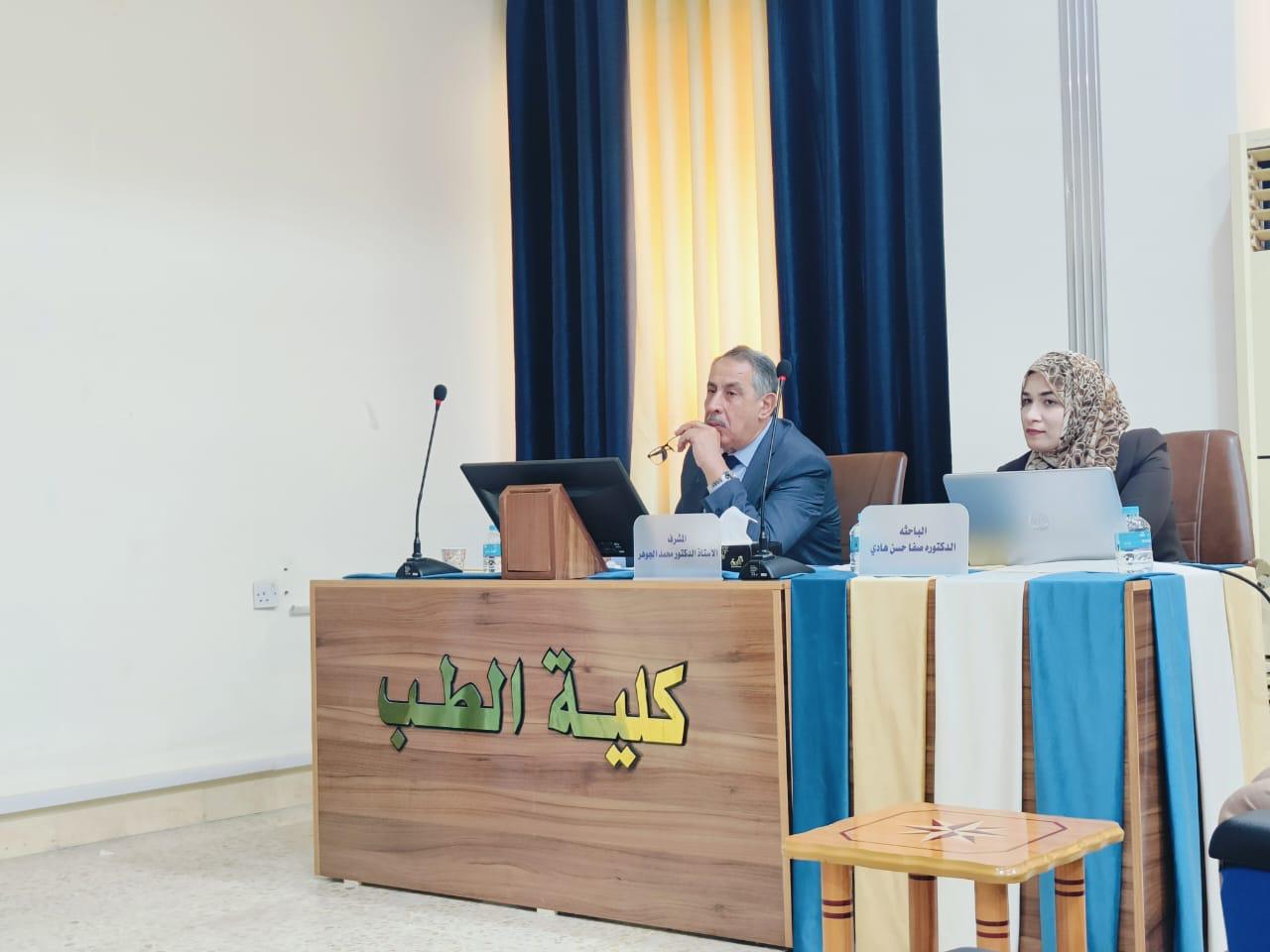
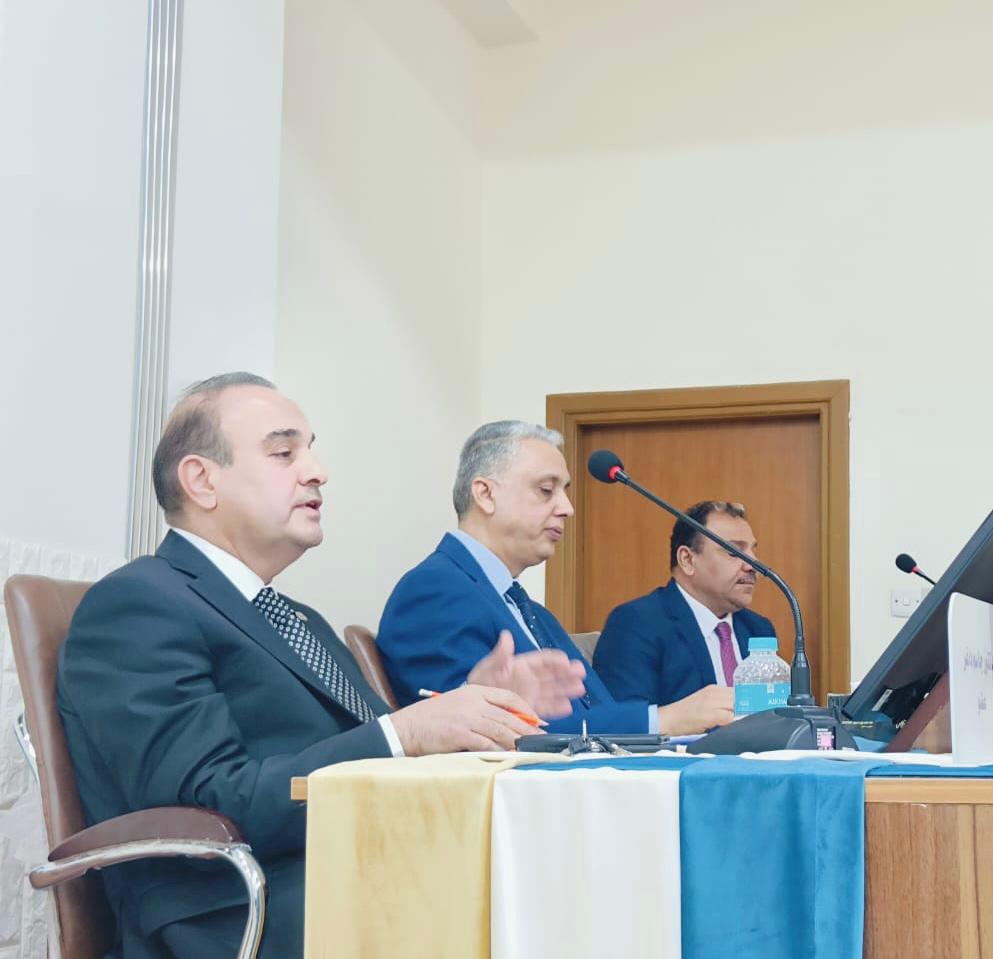

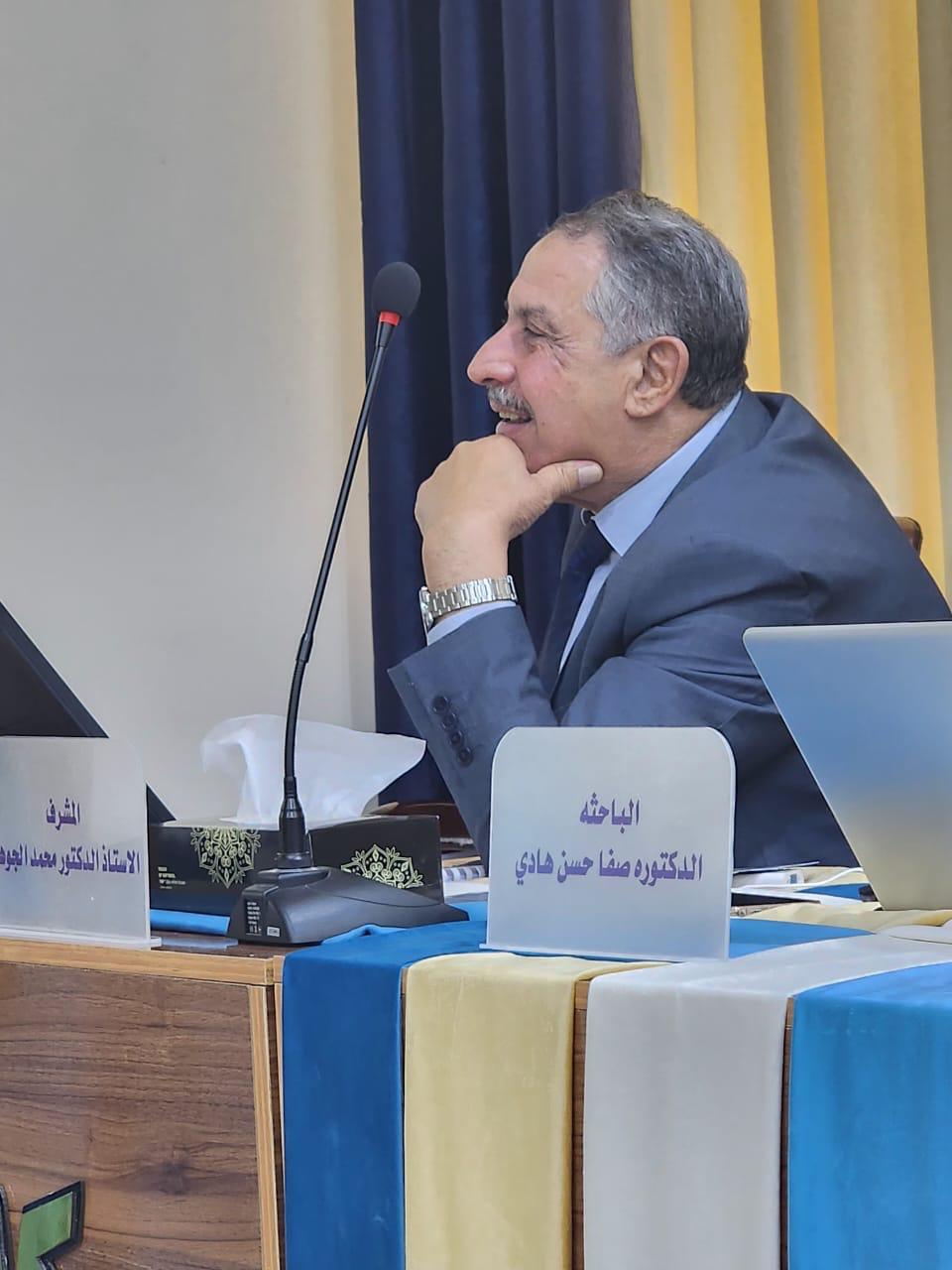
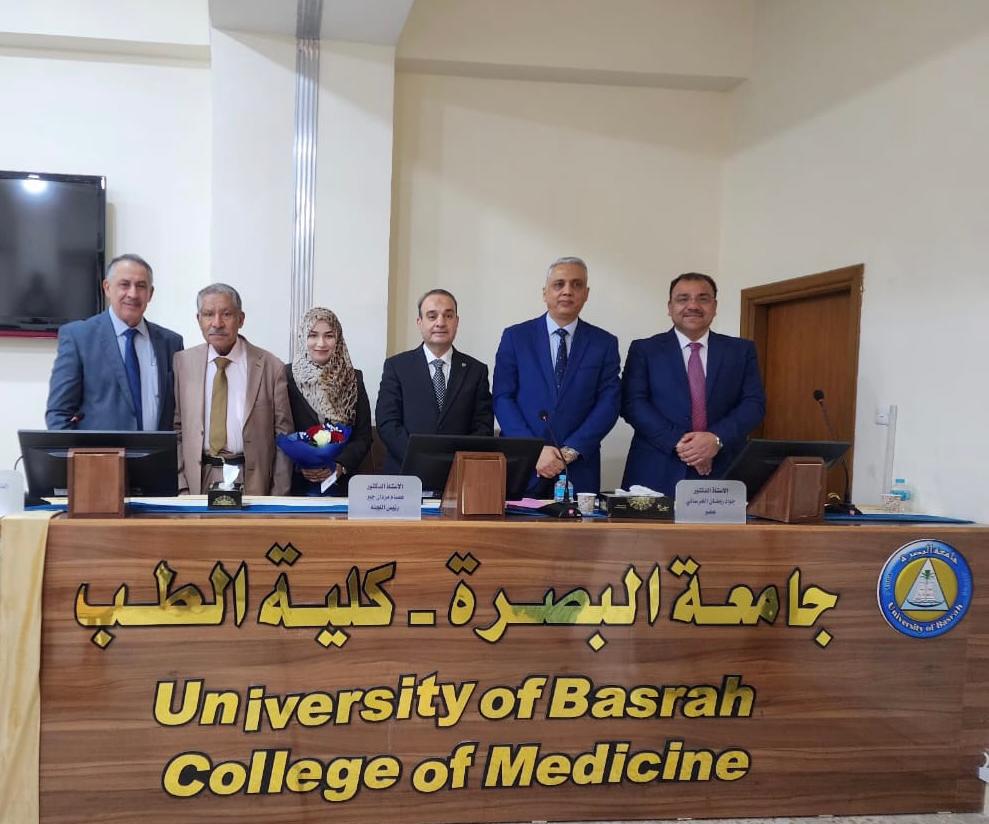
Board's research at the College of Medicine, University of Basrah, discussed the evaluation of risk factors and clinical outcomes of incidental gallbladder perforation during laparoscopic cholecystectomy. The research presented by student Safa Hassan Hadi aims to study the risk factors for accidental gallbladder perforation during surgery during laparoscopic cholecystectomy and its results. The incidence of accidental gallbladder perforation during laparoscopic cholecystectomy is on the rise due to increased attempts at minimally invasive surgery. There have been a number of studies attempting to determine the effect of perforation and spread of gallstones on clinical outcomes. The research concluded that accidental gallbladder perforation during surgery and during laparoscopic cholecystectomy prolongs surgical time and leads to complex postoperative outcomes such as ileus, more pain, use of analgesics, and prolonged stay in the hospital which leads to increased use of antibiotics, increased chance of surgical infection within the abdominal cavity (abscess) and (port site infection), and increased late complications due to the risk of adhesion, thus increasing the cost and economic impact. This study also showed that male gender and higher body mass index, Increasing age and specific medical history are major risk factors for accidental gallbladder perforation.





